View all Standards for Alberta, Canada
6 identify character types and their functions and attributes

UNIT
Part of the Drama One Curriculum
Commedia Dell'Arte
by Karen Loftus
Students will discover, analyze, and explore the history, characters, and style of commedia dell’arte.
Commedia dell’arte is a theatre history unit mixed with improvisation, physicalization, and exploring specific characters. In this unit, we’re going to focus on three main aspects:
1. Causes and Effects of Commedia (History)
2. Stock Characters
3. Commedia Performance Practices
Read More
about Commedia Dell'Arte
Read Less
about Commedia Dell'Arte
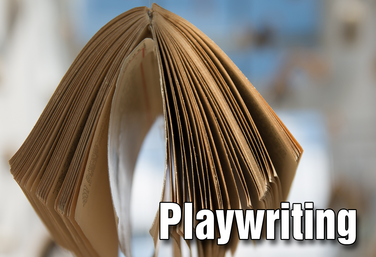
UNIT
Part of the Drama One Curriculum
Playwriting
by Karen Loftus
Students will explore the structural elements of a play: character, objective, obstacles, tactics, resolution, and raising the stakes. They will also learn how to write character-driven dialogue and stage directions. Students will work in groups to create and present a short play.
Read More
about Playwriting
Read Less
about Playwriting
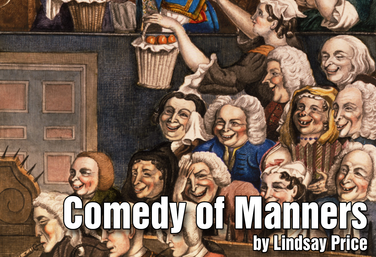
UNIT
Comedy of Manners
by Lindsay Price
The Comedy of Manners is a style of comedy that satirizes the behaviour, actions, fashions, and “manners” of a segment of society. Because it has such specific characteristics – from plot to dialogue, to characterization, to costumes – it’s an excellent era for students to learn and apply.
In this unit students are introduced to the style, learn some background, and apply the traits of the comedy of manners. The unit culminates in the creation of a modern scene.
Read More
about Comedy of Manners
Read Less
about Comedy of Manners

UNIT
The Dilemma Project
by Claire Broome
The Dilemma Project is based on a situation that requires a decision: push a button and get a great reward, but there’s also a great consequence. Don’t push the button and there’s no reward.
This unit will lead to a group performance including characters, costumes, set, acting theory, acting tools, and a student written script. The final script will be about ten pages in length which means roughly ten minutes of stage time.
Read More
about The Dilemma Project
Read Less
about The Dilemma Project
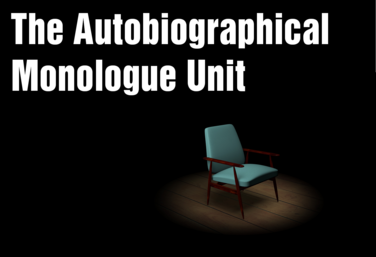
UNIT
The Autobiographical Monologue
by Gai Jones
All students have something to say and a story to tell. They can relate to their personal stories better than anyone else. All students have a lot of material which can be used as part of an original monologue.
In this unit, students will write an autobiographical monologue based on their personal expertise, memories, distinct point of view, sense of truth, and life experiences.
Through the process, students will be encouraged to explore past stories, objects, and images and other personal material.
Read More
about The Autobiographical Monologue
Read Less
about The Autobiographical Monologue
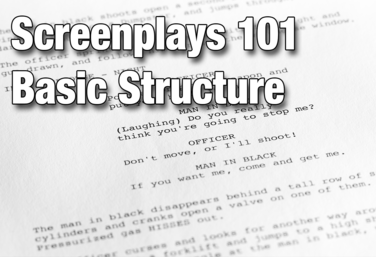
UNIT
Screenplays 101: Basic Structure Unit
by Nicholas Pappas
Screenplays 101 is divided into two separate units: Basic Structure and Basic Formatting.
**It is highly recommended that you complete the Basic Structure unit before moving on to the Basic Formatting unit.**
In this unit, we will focus on a basic history of screenplays, screenplay terminology, and the most common screenplay structure in film—the three-act structure. Theatre is important because it allows our young artists to be trained and learn about work ethic and discipline, and it creates community. But, we should also give our students opportunity and access to the cinematic arts. This is primarily a lecture-based unit with a lot of new information, with opportunities for students to apply knowledge including a final culminating project.
Read More
about Screenplays 101: Basic Structure Unit
Read Less
about Screenplays 101: Basic Structure Unit
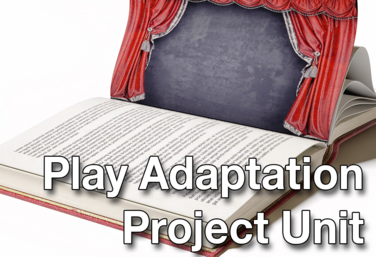
UNIT
Play Adaptation Project
by Lindsay Price
Adaptation is a fabulous classroom project: it requires students to analyze, adapt, modify, plan, synthesize, and devise. However, it takes skill to write a successful adaptation; you can’t just throw a narrator into a script and consider the work done. In this unit, students will go through a step by step pre-writing process in order to prepare them to write their own adaptations. They will learn and practice the elements of adaptation before writing the first draft of their own theatrical adaptations.
Read More
about Play Adaptation Project
Read Less
about Play Adaptation Project

PD COURSE
Working With Monologues For Rehearsal And Development
by Gai Jones
In "Working With Monologues For Rehearsal And Development" you will develop ten sessions of study on monologues. The study contains the definition and history of the monologue; monologue vocabulary; analysis of a practice monologue, staging a short monologue; working with musical theatre lyrics as a monologue; writing short autobiographical monologues.
At the end of this course, you will have a curriculum which can be used as introduction to monologue work.
Read More
about Working With Monologues For Rehearsal And Development
Read Less
about Working With Monologues For Rehearsal And Development
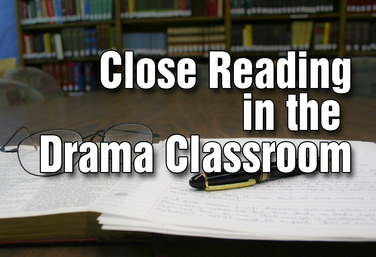
PD COURSE
Close Reading in the Drama Classroom
by Lindsay Price
Close reading is an activity that puts curriculum standards into practice and it can be easily applied to the drama classroom.
Close reading asks a lot of your students. They have to read and think at the same time.
This course teaches drama teachers how the close reading process works, and gives them exercises and tools to apply it in the classroom.
Read More
about Close Reading in the Drama Classroom
Read Less
about Close Reading in the Drama Classroom
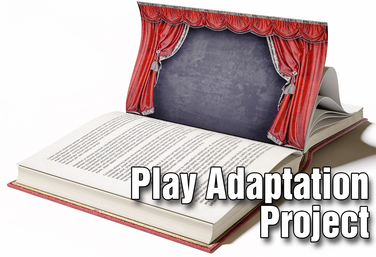
PD COURSE
Play Adaptation Project
by Lindsay Price
Adaptation is a fabulous classroom project: it requires students to analyze, adapt, modify, plan synthesize, devise. All the higher order thinking skills.
But you can’t just throw a narrator into a script and call it a day. You have to have a preparation process leading up to the writing process.
In this course you will learn practical exercises and a path to prepare your students to take on their own adaptation project. We’ll look at the guidelines to adaptation, things to think about when choosing a text, how to analyze the source material and writing that first draft.
So join me, Lindsay Price, in the Play Adaptation Project.
Read More
about Play Adaptation Project
Read Less
about Play Adaptation Project

PD COURSE
Get Students to Embrace Failure in the Drama Classroom
by Lindsay Price
This course by Lindsay Price explores strategies you can use to encourage students to embrace failure rather than see it as a point of shame or something to hide from.
Our goal for students is to embrace a try/fail/try again/fail/try again/succeed formula. Each module in this course comes with exercises and activities that you’ll be able to take into the classroom right away.
It’s one thing to talk about embracing failure, it’s another to give students practical tools to help them achieve that goal. Join Lindsay in getting students to embrace failure in the drama classroom as we look at Failure from a Yes! perspective.
Read More
about Get Students to Embrace Failure in the Drama Classroom
Read Less
about Get Students to Embrace Failure in the Drama Classroom

PD COURSE
The Dilemma Project
by Claire Broome
Moral dilemmas are not only faced by characters in gripping plays, but are also faced by our students. The project outlined in this course will help students develop their critical thinking skills through the use of one of the dilemma questions to shape a student written production.
If you had the choice to press a button and earn $25,000,000... but a species (not of your choosing) would become extinct, what would you do? More importantly, what would your character do?
Join drama teacher and playwright Claire Broome through this course which includes role-playing, Stanislavski’s Magic If, character creation, playwriting and staging.
Read More
about The Dilemma Project
Read Less
about The Dilemma Project

PD COURSE
How to Give Feedback to Student Playwrights
by Nicholas Pappas
The two big questions we’re going to answer in this course are: What is feedback? And, What is useful feedback? Now, if you asked a hundred people to answer these two questions, you’ll likely get a hundred different answers, but at its core, all the answers will focus on giving notes that will improve the work, which, in this case, is our student’s plays. And, as a teacher, that’s what your hope is, right? To help your students improve as writers, one work at a time.
We want our students to write, and to grow through their writing. If we want our students to get better, we need to get better. Understanding the definition of feedback, and understanding how to provide useful feedback is the key to all of us getting better.
Join Nick Pappas in this course designed to give you the tools to help your student writers find their voice.
Read More
about How to Give Feedback to Student Playwrights
Read Less
about How to Give Feedback to Student Playwrights

PD COURSE
Playwriting Outside the Lines
by Steven Stack
Instructor Steven Stack leads this course in a unique way to teach playwriting. He will show you how to set foundations and guide posts for your students, and then give them freedom to play. The intent is to help students develop their own voice and create for creating sake. The 5 modules lead teachers through how to use this style of teaching playwriting, and includes handouts and resources to support the learning.
Read More
about Playwriting Outside the Lines
Read Less
about Playwriting Outside the Lines
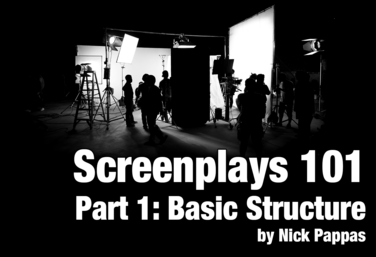
PD COURSE
Screenplays 101 - Part 1: Basic Structure
by Nicholas Pappas
Screenwriter Nick Pappas leads a two-part course on screenplays 101. Great scriptwriting is not something that can be covered in a single course: so we're going to start with the basics. Those basics are going to be split up into a Part 1 and a Part 2. Part 1, this course, will concentrate on basic film structure. Part 2 will concentrate on screenplay formatting.
By the end of this course, students should have a basic understanding of history, terminology, and are able to identify the barest bones of the three-act structure, all with an eye toward developing their own screenplay.
Read More
about Screenplays 101 - Part 1: Basic Structure
Read Less
about Screenplays 101 - Part 1: Basic Structure
View all Standards for Alberta, Canada Standards Master List